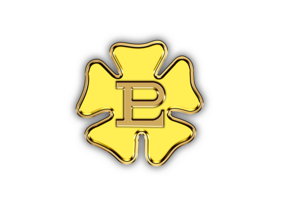THE PRIMROSE LEAGUE
In the mid-1800s conservatism was in its infancy. Britain was trying to understand and adapt to the political and social implications of the industrial revolution. In the 1870s and 80s, conservatism centred around Benjamin Disraeli’s concept of ‘One Nation’ conservatism. Disraeli felt that the laissez-faire capitalism popular at the time encouraged a self-interested individualism that undermined the idea of social responsibility and threatened to split Britain into two nations — the rich and the poor. He was right, and we see that today. If left unaddressed, he argued, this division would lead to social antagonism and conflict, a declining sense of community and national identity and, possibly, revolution.
Disraeli’s concern, against the backdrop of the social impact of the industrial revolution and revolutions in Europe, was to ensure that established institutions and traditional principles were combined with policies designed to benefit the ordinary person. He also believed that society should be allowed to develop in an organic way, rather than being engineered, as some would argue it is today.
In 1883, following Disraeli’s death in 1881, a small group, including Winston Churchill’s father, Randolph Churchill, took up the cause and founded the Primrose League. It was arguably the Primrose League that transformed and shaped British Conservatism up until the 1970’s.
In the 1970s and 80s, the Conservative Party departed from true One Nation Conservatism by adopting economic liberalism which, in turn, led to a return of the laissez-faire capitalism that Disraeli had been concerned about. Furthermore, subsequent Conservative leaders, in particular David Cameron and Theresa May, perverted the term One Nation Conservatism by referring to themselves as One Nation Conservatives whilst in fact pursuing socially liberal policies, including multiculturism, high rates of immigration and the indulgence of highly divisive identity politics. True One Nation conservatives place the interests of the United Kingdom and the British people first. It could be argued that the Conservative Party no longer does that.
In combination, these developments have contributed to the social divisions, economic inequalities, and the declining sense of community and national identity that Disraeli predicted. They’ve also made naturally patriotic Britons politically homeless.
We cannot bring Disraeli or Lord Randolph Churchill back, but we can, and have resurrected the Primrose League, by which means Churchill was able to mobilise ordinary people and establish One Nation Conservatism as the dominant form of conservatism in Britain, and by which means he and those working with him promoted the powerful sense of national unity, patriotism, social responsibility and confidence we associate with the late Victorian era up until the early 1970’s.
Our purpose is to return that confidence, optimism, prosperity, security and sense of national identity to the British people, just as the Primrose League and One Nation Conservatism did once before.
For us, now and henceforward, this and the preservation of our democratic system and constitutional monarchy, the rights of our citizens, and the broad interests of the Nation against socialist attack, must be the main purposes of political action and public life.
True One Nation Conservatism advocates the furtherance of the United Kingdom and its interests, preservation of established institutions and traditional principles within a political democracy, in combination with social and economic programmes designed to benefit the ordinary person. According to this political philosophy, society should be allowed to develop in an organic way, rather than being engineered. It argues that members of society have obligations towards each other.
That work, that political action, must be free of the influence of political parties, or it will be shaped by them and lose purpose.
Our antecedent movement was founded in 1883, at a time when there was a need to define conservatism, enhance the ascendancy of Britain and the Empire, strengthen and broaden democracy, counter the rising threat of socialism, and address social tensions - much as is the case today. At its height, the Primrose League had a membership of around 2 million, and soon became the principal home for patriots with culturally conservative beliefs, throughout the nation.
WHAT WE ARE AND ARE NOT
The Primrose League is a patriotic mass-membership organisation (not a political party), first established in 1883, at a time when there was a need to define conservatism, enhance the ascendancy of Britain and the Empire, strengthen and broaden democracy, counter the rising threat of socialism, and address social tensions - much as is the case today. At its height, our antecedent had a membership of around 2 million. The Primrose League soon became the principal home for patriots with culturally conservative beliefs, throughout the nation.
We are not a political party, nor are we affiliated to any political party. The League is a politically independent, culturally conservative, extra-parliamentary organisation that seeks to influence politics.
Our antecedent organisation was established by Lord Randolph Churchill (Winston Churchill's father), Sir Henry Drummond Wolfe, John Gorst and Sir Alfred Frederic Adolphus Slade in the wake of the Conservative Party's loss to Gladstone in the 1880 election and the death of Benjamin Disraeli in 1881. At the time the population was deeply patriotic but lacked cultural conservative representation to match. Again, much like today.
To paraphrase Winston Churchill's speech to the Primrose League:
Our purpose is to pursue the goal of ever greater confidence, optimism, prosperity, security, pride and patriotism in the United Kingdom, preserve our democratic system and constitutional monarchy, the rights of our citizens, and the broad interests of the Nation against socialist attack. For us, now and henceforward, these must be the main purposes of political action and public life.


